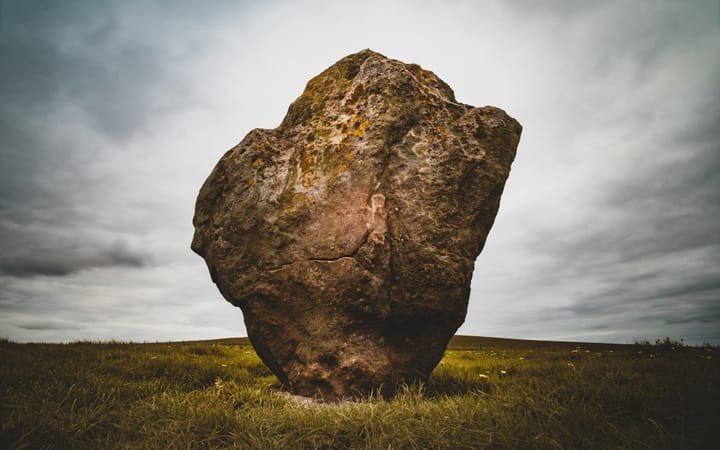Should Christians Pray “Fleece Prayers”?
Should Christians lay out a fleece when they pray? The origination of “fleece prayers” started in Judges 6 when Gideon asked God for a sign of whether to attack the Midianites.

Judges 6-10
Today's Scripture Passage
A Few Thoughts to Consider
Should Christians lay out a fleece when they pray?
The origination of “fleece prayers” started in Judges 6 when Gideon asked God for a sign of whether to attack the Midianites.
Keeping with their rebellious nature, the first verses of chapters 4 and 6 give us two parallel narratives. In 4:1-2, 1 “The Israelites again did what was evil in the sight of the Lord after Ehud had died.” 2 So the Lord sold them to King Jabin of Canaan, who reigned in Hazor. The commander of his army was Sisera, who lived in Harosheth of the Nations.” In Chapter 4, God raises up a prophetess and judge named Deborah, and she, along with Barak and Jael, leads Israel to victory over the Canaanites.
Several decades later, in 6:1-2, “The Israelites did what was evil in the sight of the Lord. So the Lord handed them over to Midian seven years, 2 and they oppressed Israel.” This time, God raises up a man named Gideon to liberate Israel. In 6:36, 36 “Then Gideon said to God, ‘If you will deliver Israel by me, as you said, 37 I will put a wool fleece here on the threshing floor. If dew is only on the fleece, and all the ground is dry, I will know that you will deliver Israel by me, as you said.’”
God answers Gideon’s request and delivers a massive victory for Israel, using only 300 men against an army so large they were like “a great swarm of locusts.”[1] But was Gideon right to pray this way, and should we model our prayers after him? Daniel Block answers this way: “Contrary to popular interpretation,” he says, “this text has nothing to do with discovering or determining the will of God. The divine will is perfectly clear in his mind (v. 16). Gideon’s problem is that with his limited experience with God he cannot believe that God always fulfills his word. The request for signs is not a sign of faith but of unbelief.”[2]
Despite hearing God say in 6:16, “I will be with you…You will strike Midian down as if it were one man,” Gideon still doubts. And when addressing God, he doesn’t use his covenant name, “Yahweh.” Instead, he uses “Elohim,” the generic term for God. Thus, God’s response to Gideon says less about Gideon’s persistence and more about God’s eagerness to bring deliverance to his people.
Before we come down too hard on Gideon, though, we might do well to question our own trust in God. How well do we know him, and how quick are we to do what he says? While there are some situations where we must certainly discern God’s will, there are many that are clear. And if we were to be honest with ourselves, our primary struggle is not clarity, but trust.
So before laying out a fleece, take inventory of all God has said to you in the past. Chances are, if you trust what he’s already said, a fleece won’t even be necessary.
A Meditation to PRAY
Praise | I praise you for your unwavering faithfulness and mighty power. Your greatness is beyond my understanding, and your deeds remind me of your boundless grace and strength.
Release | I let go of my need for constant reassurance, trusting in your guidance and timing. Help me to lay down my questions and hesitations at your feet, finding peace in the knowledge that you are with me.
Ask | Guide me to recognize your voice amidst the noise of this world. I ask for the courage to step out in faith, even when the path seems uncertain. Grant me the strength to face challenges with confidence, knowing you have chosen me for the tasks ahead.
Yield | I yield to your will, willing to be molded vessel for your purposes. Teach me to find strength in your presence. Help me to listen to your guidance and to be ready to act whenever and wherever you ask.
A Challenge to Act Like Christ
Dallas Willard wrote, “The ultimate freedom we have as individuals is the power to select what we will allow or require our minds to dwell upon and think about.”[3] And one of the primary problems for many Christians is they overthink the process of becoming like Christ. They strive for 100% clarity when God wants to build their faith.
God wants to take us deeper. He wants to get us to the place where our knee-jerk response is to do what he says. When Scripture confronts us with ways we should change how we talk to others, treat our spouse, or go to work, we instantly obey because we trust in Yahweh, our covenantal God.
We trust that Jesus is who he says he is and move forward with that confidence.
*Unless you specify otherwise, comments and questions you ask may be featured in upcoming podcast episodes.
[1] Judges 6:5
[2]Daniel I. Block, Judges, Ruth, ed. E. Ray Clendenen and Kenneth A. Mathews, vol. 6 of The New American Commentary. Accordance electronic ed. (Nashville: Broadman & Holman Publishers, 1999), 272.
[3] Dallas Willard, Life Without Lack: Living in the Fullness of Psalm 23, (Nashville: Thomas Nelson, 2018), 3.




Comments ()